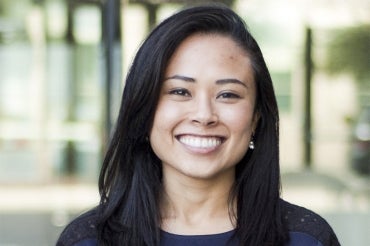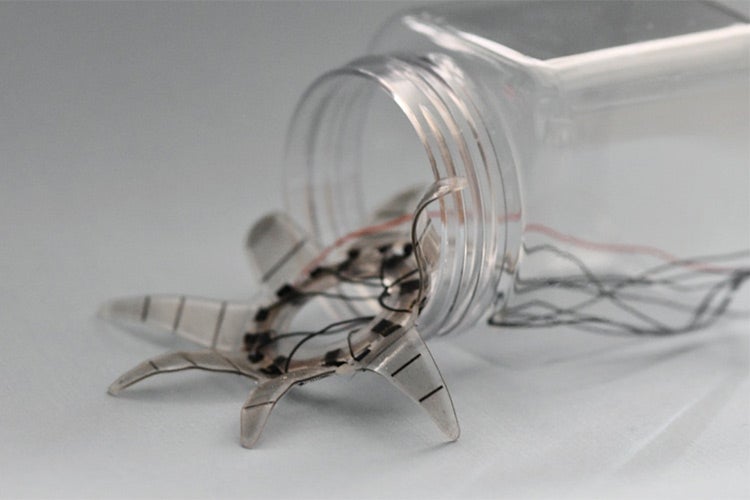12 research projects at U of T and its partner hospitals receive support through John R. Evans Leaders Fund

Published: February 23, 2022
The University of Toronto’s Karina Carneiro is focused on using DNA nanostructures to develop materials for the diagnosis and treatment of diseases that affect connective tissues, as well as the regeneration of those tissues.
She is one of 12 researchers at U of T and its partner hospitals to receive funding this week through the Canada Foundation for Innovation’s (CFI) John R. Evans Leaders Fund (JELF), which helps institutions to recruit and retain outstanding researchers, and provide them with the necessary tools and technology to perform their work.
An assistant professor in the Faculty of Dentistry, Carneiro will use the nearly $160,000 to support her research project, “DNA nanomaterials for connective tissue diseases.”
“This funding is essential for my research program,” she says. “It will allow me to purchase crucial instruments needed for the synthesis and characterization of the DNA-based materials we develop in my group.”
More than $30 million was provided to 136 research infrastructure projects at 31 universities across the country in the latest funding round. Named after a former U of T president, the John R. Evans Leaders Fund supports projects that deal with a range of pressing issues, from climate change to innovation in the food sector.
The projects at U of T and its partner hospitals that received support through the latest funding round span studies of aging and dementia to soft, stretchable robotic devices.

Mihai Duduta, a researcher in the Faculty of Applied Science & Engineering, received JELF support for his team’s work on soft robots, which can be made of a common polymer combined with carbon nanotubes (photo by Mihai Duduta)
“The federal government’s ongoing support for research through the John R. Evans Leaders fund is critical to equip Canadian researchers with the tools they need to address some of the world’s greatest challenges,” said Leah Cowen, U of T’s vice-president, research and innovation, and strategic initiatives.
“Professor Carneiro’s research, which could facilitate diagnosis and treatment of fibrotic diseases, is an excellent example of how strategic investment in university infrastructure benefits the public.”
The materials Carneiro is helping to develop will enable the design of biomaterials for collaborative projects with the co-applicants Professor Christopher McCulloch and Vice-Dean Research and Professor Bernhard Ganss. Although custom DNA-based materials can be purchased at high cost, having these instruments in-house will give Carneiro and her team the freedom to optimize the molecular design as new insights are gained.
With aging – and in several high prevalence diseases such as heart failure, osteoarthritis and periodontitis – the connective tissues undergo critical structural alterations, leading to loss of organ function, disability and in some cases, death.
The new, customized infrastructure being developed by Carneiro and her team will enable them to perform state-of-the-art research for advanced synthesis and high-resolution imaging that will provide unprecedented levels of resolution.
“This funding with help with two goals of the program,” Carneiro says. “To enable reliable diagnosis of fibrotic diseases at earlier stages than allowed by current methods, and to provide therapeutic options for challenging tissue lesions.”
Here are the recipients of the John R. Evans Leaders Fund at U of T and its partner hospitals:
- Karina Carneiro of the Faculty of Dentistry
- Tom Chau of the Institute of Biomedical Engineering in the Faculty of Applied Science & Engineering and the Holland Bloorview Kids Rehabilitation Hospital
- Howard Chertkow of the department of medicine in the Temerty Faculty of Medicine and Baycrest Health Sciences
- Mihai Duduta of the department of mechanical and industrial engineering in the Faculty of Applied Science & Engineering
- Daniel Létourneau of the department of radiation oncology in the Temerty Faculty of Medicine and the University Health Network
- Christopher Maddison of the department of computer science in the Faculty of Arts & Science
- Avril Mansfield of the department of physical therapy in the Rehabilitation Sciences Institute, Temerty Faculty of Medicine, and the University Health Network
- Jamie Near of the department of medical biophysics in the Temerty Faculty of Medicine and the Sunnybrook Research Institute
- Peter Roy of the department of molecular genetics in the Temerty Faculty of Medicine
- Ervin Sejdić of the Edward S. Rogers Sr. department of electrical and computer engineering in the Faculty of Applied Science & Engineering
- Walter Swardfager of the department of pharmacology and toxicology in the Temerty Faculty of Medicine
- Chao Wang of the department or immunology in the Temerty Faculty of Medicine and the Sunnybrook Research Institute


